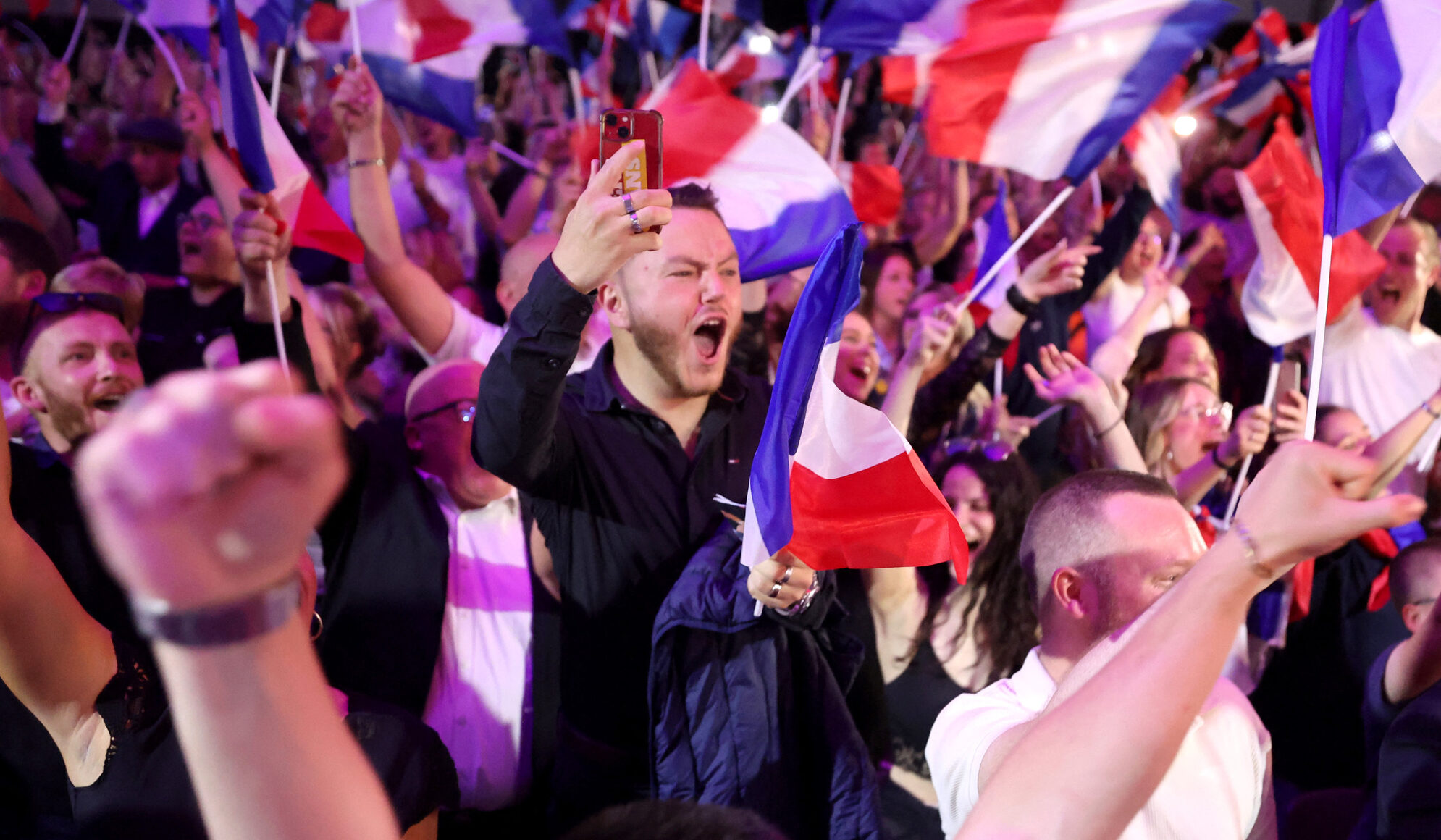In a sign of how charged up the French electorate was, voting participation during tonight’s election increased by 21% compared to the legislative elections in 2022. The results were largely foreseen by the polling, with the Rassemblement National-Les Republicains alliance coming in top with 34% of the vote. Emmanuel Macron’s centrist bloc, meanwhile, finished a distant third with 21%.
There remain a number of unknowns. Only at the upper limit of its most favourable polls does the RN have shot at an absolute majority. Even then, that upper limit of projection sees the party gain 290 seats — five above the 285 needed for a majority. What’s more, there is an unprecedented number of “triangulars”, three-way battles between the different blocs in the second round. We can expect around 250 of these contests. This means that vote transfers are vitally important. But how will different voting blocs react to the circumstances?
The Leftist parties have said they will withdraw their candidates where they come third, meaning that Left-wing voters will likely do what they have done in the last two presidential elections and vote to faire barrage (erect the barricade) against the far-Right. Macron and his Prime Minister Gabriel Attal, however, have called for alliances to include “those who share republican values”.
This framing is important, as in their eyes Left-populists La France Insoumise (LFI) often don’t fall into the republican category. LFI is the largest of the Left parties, so it’s currently unclear how Macronists will play it. François-Xavier Bellamy, a high-profile Les Republicains dissident who recently broke with the party, did not call on his voters to go any particular way, but he did say that he preferred the RN to LFI.
This means that the future of the Republic lies with the instincts of centrist voters. In recent years, many journalists and politicians on the Right have abandoned the language of the “republican front”, opting instead for the “republican arc”. The front represented a single wall against the far-Right, whereas the arc represents the spectrum of acceptable political opinion with the populist Left and radical Right excluded at the margins. A key question as France heads into its triangular showdowns is which set of messaging France’s centrists will listen to. Will they decide to uphold a crumbling tradition of blocking out the Rassemblement National from power? Or will they decide that the Left are the real extremists and vote against Macron, their tribune.
The coming week will see mobilisations and counter-mobilisations by Left and Right. There will be turbulence in the markets, which have already threatened to constrain a potential government of the RN or New Popular Front. And we will see alliances formed, scalps claimed, and victories won that would have been unthinkable even three weeks ago. The head of the French Parti Communiste Francais has already fallen, as has a former François Hollande minister and Damien Abad, a minister in Macron’s government under the prime ministership of Elisabeth Borne.
Meanwhile, Marie-Caroline Le Pen — Marine’s sister, —enters a tense triangular in Sarthe. A hung parliament is the most probably outcome — although it is possible for the RN to win an outright majority. If it does, this may not last for long, Le Figaro reports that the Macronists are planning another election for a year’s time when he is constitutionally able to dissolve parliament again. Macron gambled and lost, but he remains determined to cling to power.










Join the discussion
Join like minded readers that support our journalism by becoming a paid subscriber
To join the discussion in the comments, become a paid subscriber.
Join like minded readers that support our journalism, read unlimited articles and enjoy other subscriber-only benefits.
Subscribe